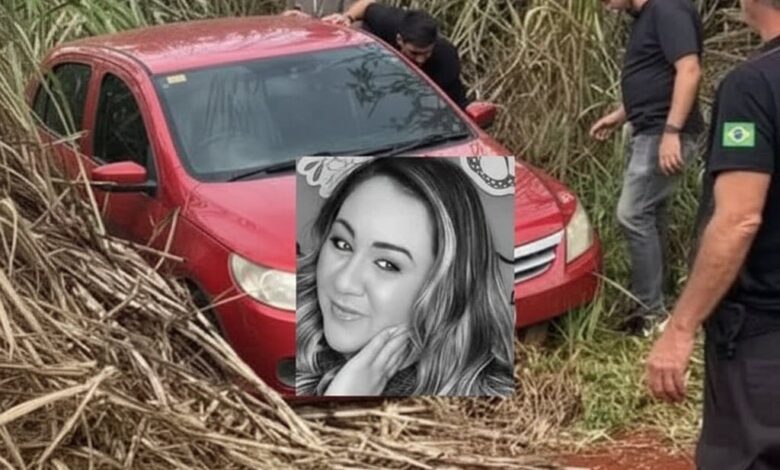For sixty-four days, her name echoed through neighborhoods, across radio stations, and in the corners of the internet where strangers rallied around a single hope: Find Raisa. When the call finally came — two words, “She’s safe” — the collective breath that had been held for two months was released all at once. Raisa had been found. It was a moment that stopped time for her family, her friends, and the hundreds of volunteers who had refused to let her story fade. After weeks of fear, speculation, and dead ends, the nightmare had broken. The police confirmed her recovery in a short, measured statement. They didn’t say much — only that Raisa had been located alive and that she was receiving care. The details of her condition, or where she’d been, remained undisclosed. They were still “verifying facts,” still “investigating circumstances.” But none of that mattered, not yet. For now, the only fact that mattered was this: she was alive.
The search for Raisa began quietly at first — a missing person report filed on a Monday morning, one more name added to a growing list. She was twenty-six, a recent graduate, working part-time while deciding her next step. To those who knew her, she was responsible, warm, the kind of person who remembered birthdays and carried snacks for everyone. When she failed to show up for work and stopped responding to calls, alarm bells rang immediately. By the end of that day, her parents had reached out to police. By the second day, her friends had begun organizing their own search teams.
It didn’t take long for her story to explode across social media. A simple post — “Help us find Raisa. Last seen near Brookline Park, wearing a gray jacket.” — went viral. Within a week, it had been shared over 50,000 times. Strangers she’d never met joined the effort, printing flyers, checking surveillance footage, even forming walking teams to comb through woods, trails, and abandoned lots. Every night, her mother left the porch light on. Every morning, her father returned to the police station, asking if there was anything — anything — new. Theories multiplied. People speculated endlessly online. Some thought she had run away. Others feared something darker. But for her family, hope never dimmed.
“She’s out there,” her brother kept saying during interviews, his voice steady but his eyes exhausted. “She just needs us to keep looking.” And they did. Even when leads went nowhere. Even when tips turned out to be hoaxes. Even when the search felt impossible.
By the second month, exhaustion had settled over the community like fog. Flyers faded from telephone poles, and news outlets began to move on to other stories. But her family refused to surrender. Volunteers still met every weekend, gathering at the community center before heading out with flashlights and radios. Search dogs were brought in again. Drones scanned rivers and wooded areas. Her mother, who hadn’t slept more than three hours a night since Raisa vanished, kept her daughter’s favorite meal ready every evening — a quiet ritual that hurt as much as it comforted. Then, on a cool November morning, everything changed.
Police received a tip that led them to an address outside the city — a small, rented home near the edge of a rural county line. Inside, they found Raisa. The first reports said she was “safe and stable.” The word safe sounded foreign, almost fragile. Neighbors who had joined the search described the moment as “like watching a storm finally break.” No one outside the immediate family was allowed to see her right away. Authorities said she was being evaluated by doctors and trauma specialists. They declined to comment on where she had been, who she was with, or how she’d survived. The investigation is ongoing, they said. For now, what mattered most was recovery — hers, and that of the family that had lived two months in limbo.
In front of the family’s home, the same porch light that had burned every night still glowed softly. Friends gathered quietly in the yard, hugging each other, some crying, some simply staring at nothing. A neighbor, who had distributed flyers from the beginning, said, “We didn’t know if this day would come. But we never gave up. No one did.” Inside, behind closed curtains, Raisa’s parents released two months of bottled fear. Her mother later said through tears, “We just want to be with her. To hold her. Nothing else matters.” Their request for privacy was immediate and absolute. No interviews. No photos. No details. Just space to breathe.
The same online community that had fueled the search now pivoted to celebration. Posts flooded social media — hearts, candles, words like “finally” and “miracle.” People who had never met Raisa felt invested in her story; they’d prayed, searched, hoped, and now they rejoiced. But beneath the relief lingered something else — the haunting awareness that not every missing person story ends this way.
Authorities confirmed that investigations would continue “for as long as it takes.” They thanked the public for their help but urged caution. “Speculation,” one official warned, “can do as much harm as good. What Raisa needs now is compassion and time.” Behind those careful words was a simple truth: whatever had happened during those two months had changed everything.
By week’s end, the search command center that had once been packed with maps, photos, and volunteers stood quiet. Handwritten notes lined the walls — “We believe in you, Raisa.” “Come home.” “You are loved.” The team didn’t tear them down. They left them up as a reminder — that hope, once shared, has a life of its own. At a small gathering days later, a volunteer named Camila summed it up best. “You can prepare for a search,” she said, “but you can’t prepare for the waiting. We just kept going because stopping felt like betrayal.” Her words hung in the air — not dramatic, just honest. That was what had defined the entire effort: persistence over despair. Ordinary people refusing to let one young woman’s name disappear into the noise of the world.
Now that Raisa is home, the community is left with the quiet after the storm. Relief mixes with unanswered questions, but also with gratitude — raw, simple, and real. A local pastor who had organized prayer vigils said during Sunday’s service, “Faith is not about knowing how the story ends. It’s about refusing to stop believing while you wait.” Raisa’s family hasn’t spoken publicly since her return. Neighbors say they see lights on late into the night. Sometimes soft music. Sometimes silence. Healing rarely comes fast. But when the search team met one last time, they decided to keep the organization active — to help other families facing the same nightmare. “We can’t stop now,” said one volunteer. “We found Raisa. But there are others still out there.”
And so, what began as one family’s desperate plea became something larger — a testament to what happens when strangers care enough to act. The details of Raisa’s disappearance may take time to emerge. Some may never be known. But for her family and for everyone who searched, that’s secondary. What matters most is simple. After two months of fear and uncertainty, Raisa is home. Alive. Safe. And for the first time in sixty-four long days, her mother has finally turned off the porch light.



